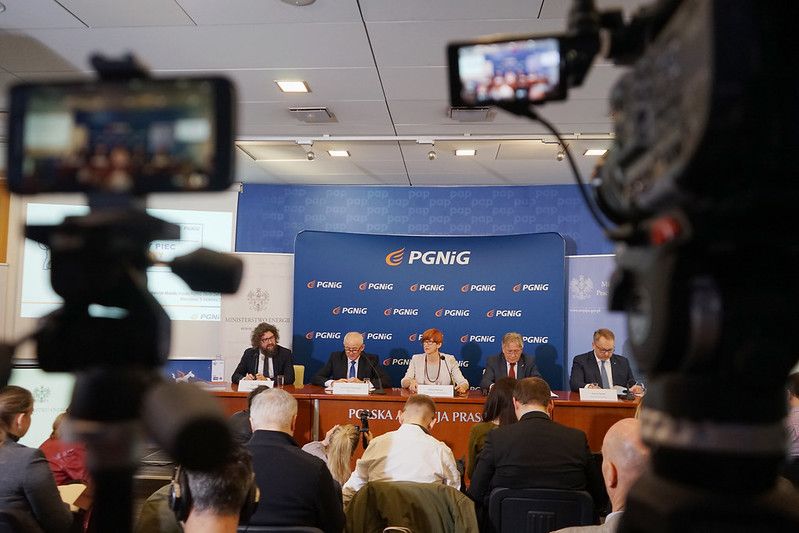PGNiG’s Victory in Arbitration with Gazprom

What was the dispute about?
The Polish state firm was disputing the prices of natural gas in the Yamal contract, a long-term gas supply agreement from 1996 that expires at the end of 2022 and covers around 60% of Polish gas imports. According to the contract, the price formula—how they are calculated—can be renegotiated every three years and if the sides cannot reach agreement, arbitration can be initiated. PGNiG did so in 2016 after negotiations with Gazprom that began in 2014 failed.
Most of Gazprom’s prices in contracts in Europe are based on the prices in European gas trading hubs. But under the Yamal contract, the Russian company tried to keep a formula that was disadvantageous for PGNiG. It was based on the indexation of gas prices to the average price of oil products. As a result, the price of some LNG deliveries from the U.S. was more competitive, including transport costs.
What was the ruling?
The tribunal ruled in favour of PGNiG. According to the company’s statement, the new price formula is “very closely and directly” tied to Western European gas market prices. The prices there are lower thanks to competition among different suppliers.
Significantly, the ruling applies from 1 November 2014 when PGNiG initiated the renegotiation of the prices. Therefore, Gazprom has to pay the difference between the amount paid by PGNiG since then and the price calculated under the new formula. According to PGNiG, this amount is around $1.5 billion (around PLN 6.2 billion).
What is the significance of the ruling for the Russian side?
The ruling means a financial setback for the Russian side and tarnishes its image. The $1.5 billion decision is an additional financial burden for Gazprom. Last year, the company finally paid $2.9 billion to Ukraine state firm Naftogaz after losing in arbitration in 2018 (the $2.56 billion ruled by the court plus interest). The requirement to not only lower the prices but also repay PGNiG may be at best inconvenient for Gazprom, since the company has made recent significant investments and has had to lower prices in Western Europe because of competition, in particular from U.S. LNG. The financial impact on Gazprom revenue could be harsher because of falling gas prices as the result of the COVID-19 pandemic.
What is the significance of the ruling for the Polish side?
Politically, the ruling supports Poland’s initiatives to become independent from Russian gas (including the decision from last year to extend the Yamal contract). This is also another example of Gazprom abusing its position in the region (e.g., by trying to force higher prices than the market average), which has been red-flagged by Poland for years.
The PLN 6.2 billion ($1.5 billion) award could be a significant financial gain for PGNiG since its 2019 net profit was PLN 1.37 billion. These resources, according to the company, may be used to purchase new oil and gas deposits (which might mean on the Norwegian continental shelf), as well as the development of green energy sources.
What are the likely next steps for PGNiG and Gazprom?
The ruling must be implemented immediately and cannot be appealed. However, after losing the Naftogaz arbitration case, Gazprom did not pay the award for almost two years after the ruling. Simultaneously, Russia tried to pressure Ukraine to give up the money. In the PGNiG case, a similar attempt is highly unlikely, and instead, Gazprom will probably stall the payment by trying to challenge the ruling in court, arguing that the arbitration did not meet procedural requirements—a strategy used in the Naftogaz dispute.
The Polish company plans to take immediate steps to recover the money from Gazprom. In the extreme this means going to court to freeze Gazprom’s assets in Europe—also taken by Naftogaz to force Gazprom to pay up. The spectre of this action returning might induce Gazprom to pay quicker.


